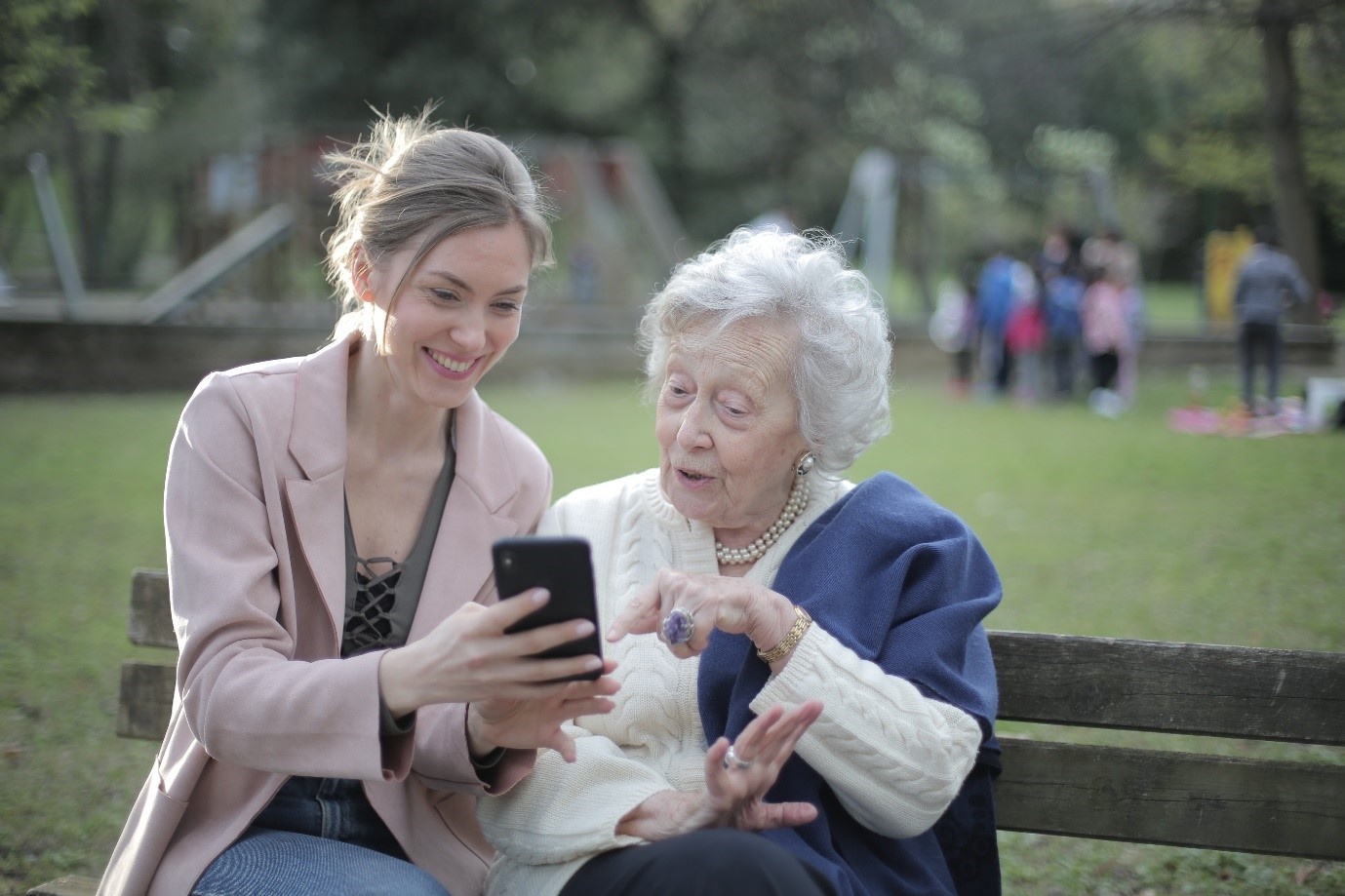Authored by Milica Vojnic Photo by Andrea Piacquadio from Pexels
Computers have governed our lives for decades, but computer literacy isn’t universal just yet. Digital independence is negatively correlated with age, so your elderly family members probably still struggle with their devices. Add cognitive decline to the mix, and you have enough digital frustration to start a flame war. One in nine adults suffer from cognitive problems at retirement age, so computer anxiety is a common symptom of growing older. Ignorance can expose elderly people to a veritable ton of online threats. Literacy is an important goal.
Identifying the Problem
Cognitive decline doesn’t always announce itself in obvious ways. It can masquerade as an inability to use devices. The first step to creating a safe digital environment for your parents is thus assessing the reasons for their struggles. If memory is the culprit, apps, add-ons, and password managers can resolve the problem in under a day. If cognitive impairment is to blame, mere memory tools won’t do.
Older patients often struggle to process information, so their learning curve can seem impossibly flat. Still, evidence suggests that those with dementia can derive plenty of relaxation and enjoyment from their devices, so it’s worth bolstering their computer literacy. No computer course can replace a simple device, such as a refurbished tablet.
Seniors tend to work best with lightweight, user-friendly tablets. If the elderly patient in your life is suffering from severe cognitive damage, try to combine all their digital usage into one device. Learning how to use two or three different operating systems can confuse even the youngest of users. Keep it simple.
Password Management
Passwords and memory woes don’t mix, so the first step to literacy begins with an easy-to-use password manager. Those who lack computer literacy are often guilty of poor password habits, so it’s best to sit down with your family member to set up a series of passwords for all of their accounts. Again, keep it simple. Software that incorporates everything from VPNs to secure file storage will be difficult to use. For once, you will need to look for fewer features. Add-ons like 1Password and RoboForm are simple and intuitive to use.
Clean Up Your Device
The more software your senior has on their device, the harder it will be to use. It’s time to Feng Sui that laptop. Delete unnecessary apps in consort with your family member. Check that their operating system updates are automatic, and install a simple anti-virus. You can add extra simplicity to their device by:
- Paring down to one email account
- Clearing unused apps from their phones
- Reorganizing their files so that they’re easy to access from one desktop icon
- With permission, cancelling unused social media accounts
- Preventing apps from leaving notifications
- Tidying up their browser plug-ins
- Unsubscribing to unwanted emails
- Removing unwanted contacts.
Dementia and Your Antivirus
If the senior in your life has serious dementia, your computer literacy lessons aren’t likely to keep them safe. Parental controls can take away their dignity, so use them with care. A robust anti-virus will protect against phishing and malware without infantilising the patient. Choose software that blocks all zero-day threats and untrustworthy URLs. This needn’t cost a fortune. Free software like Malwarebytes and Avast are highly effective. The latter will block untrusted sites.
New Ways to Pay
Dementia and credit cards rarely get along, particularly online. Safer payment methods like Google Pay or PayPal will allow your family member to shop safely. They’ll also allow you to limit expenditure. Even so, it’s best to teach your senior to look for the lock icon before parting with their precious funds.
Google Lessons
Google is every senior’s best route to independence, so teach your elderly family member how to search for step-by-step instructions. There’s a wealth of learning resources on YouTube, so be sure to open an account. When your favorite senior gets stuck with any software, they’ll have the tools they need to revise their knowledge. That independence will bolster their self-esteem and give them a much-needed sense of independence.
Learning how to Teach
Once your family member has a new device, teaching will become a part of your everyday life. You can boost memory retention by tailoring their basic computer skill lessons to their interests. Avoid jargon and allow for plenty of practice. If the senior in your life has never used a computer before, they’ll probably feel intimidated, so exercise plenty of patience. This is an opportunity to bond, so treat it as such.
Computers can be a valuable aid for the elderly. They can boost their social interactions, offer new ways to foster independence, and while away the hours. Computer literacy can be every bit as useful as a cane or bathroom rail. With a little skill-building and a lot of practice, your family member will open the door to a thrilling new experience.
Author Bio: This is an article by Milica Vojnic. She is a Digital Marketing Executive at Wisetek & Wisetek Store, global leaders in IT Asset Disposition, Data Destruction, & IT Reuse.











